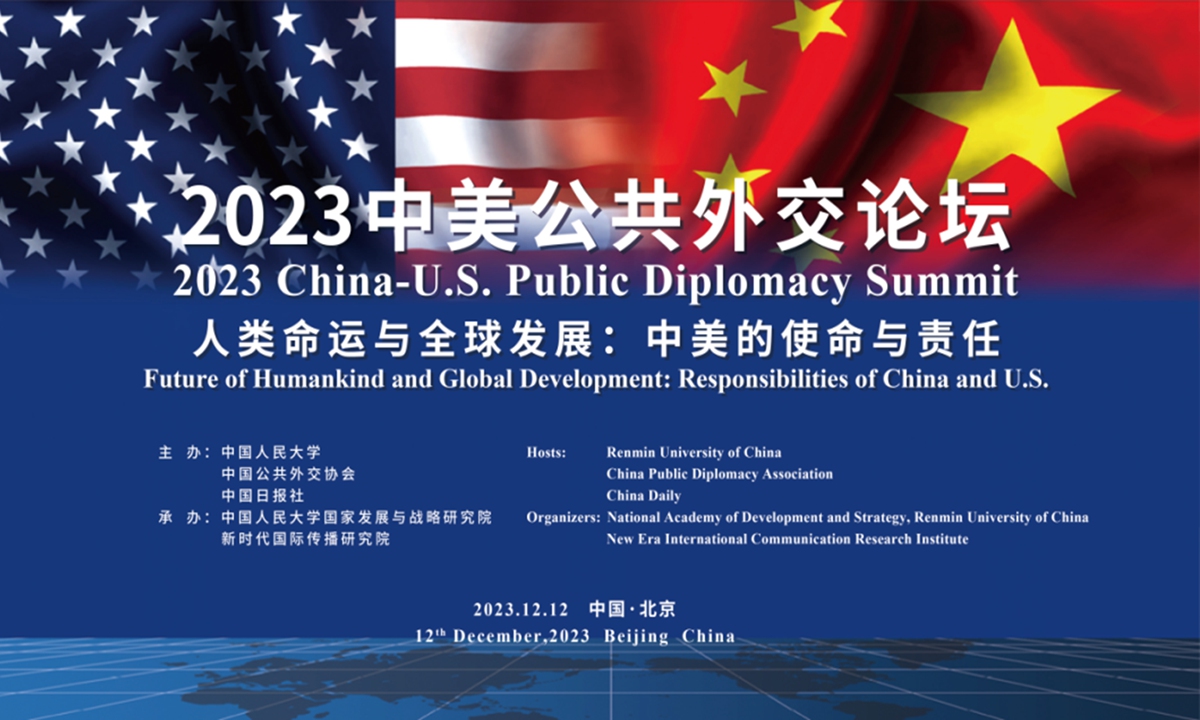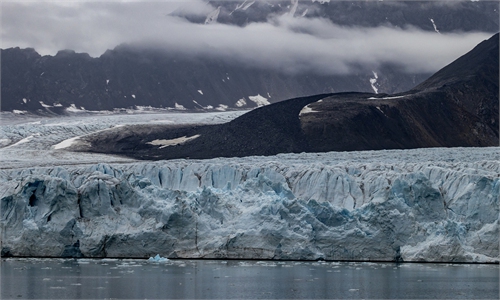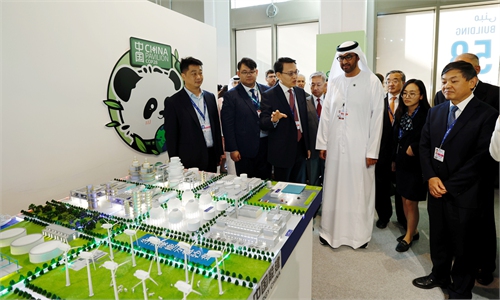US should fulfill its commitments in most sensitive areas of bilateral relations: former Chinese ambassador

The 2023 China-US Public Diplomacy Summit was held in Beijing on December 12, 2023. Photo: From the official website of the National Academy of Development and Strategy under Renmin University of China
The US should fulfill its commitments effectively in the most important and sensitive areas of China-US relations, such as matters concerning China's sovereignty and territorial integrity, Cui Tiankai, former Chinese ambassador to the US, said at the 2023 China-US Public Diplomacy Summit held in Beijing on Tuesday.
He said that to turn the consensus reached by the heads of the two states into concrete actions, the US should no longer attempt to dilute, hollow out, or subvert the one-China principle, send wrong signals to Taiwan secessionist forces, or incite so-called color revolutions in any part of China's territory, just as it has promised.
Cui made the remarks at the China-US Public Diplomacy Summit, which gathered dozens of officials and scholars from China, the US, Italy, Brazil and Egypt at Renmin University of China to hear their views on how the world's two most powerful countries should work together for the future of mankind and global development.
In the future, there will be a heavier concentration of wealth and more poor people, and there are major global issues to deal with, including climate change, the impact of pandemics, the consequences of poverty, the threat of terrorism, and the risks from new kinds of technology, John L. Thornton, chair emeritus of the US Brookings Institution, pointed out at the summit via Zoom. So the most powerful countries need to work together rather than arguing, he said.
Armida Salsiah Alisjahbana, under-secretary-general of the United Nations and executive secretary of the Economic and Social Commission for Asia and the Pacific (ESCAP), mentioned the urgent need for China and the US to cooperate on the worsening climate change issue.
Both China and the US are aware of their responsibilities to the international community and attach great importance to cooperation on climate change, which involves industrial adjustment and technological innovation, Cui said.
"But China is now facing technology restrictions from the US in many fields, with thousands of Chinese companies included in the sanction list. If this situation does not change, the depth of their cooperation in addressing climate change will inevitably be greatly limited," Cui noted.
In mid-November, the top leaders of China and the US held a summit meeting in San Francisco, reaching agreement on more than 20 issues related to political diplomacy, cultural and people-to-people exchanges, global governance and military security.
Jia Qingguo, director of the Institute for Global Cooperation and Understanding under Peking University, said that both China and the US have excessive security measures in place in terms of cultural exchanges, such as blacklists, border interrogations, and vague concepts in laws and policies.
Jia noted that the problems of difficult visa applications and expensive air tickets have been somewhat alleviated, but more can be done to encourage reasonable and legal interactions.
As a high-level annual think tank event promoted by Renmin University of China since 2015, the summit aims to support national development through innovative thinking, create a platform for diversified exchanges and rational dialogue in the international strategy community to enhance worldwide mutual understanding, enhance trust and cooperation, and increase the discourse power and influence of Chinese thinkers on the world stage.


